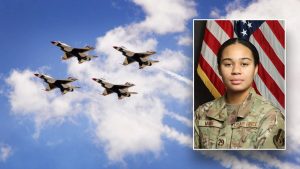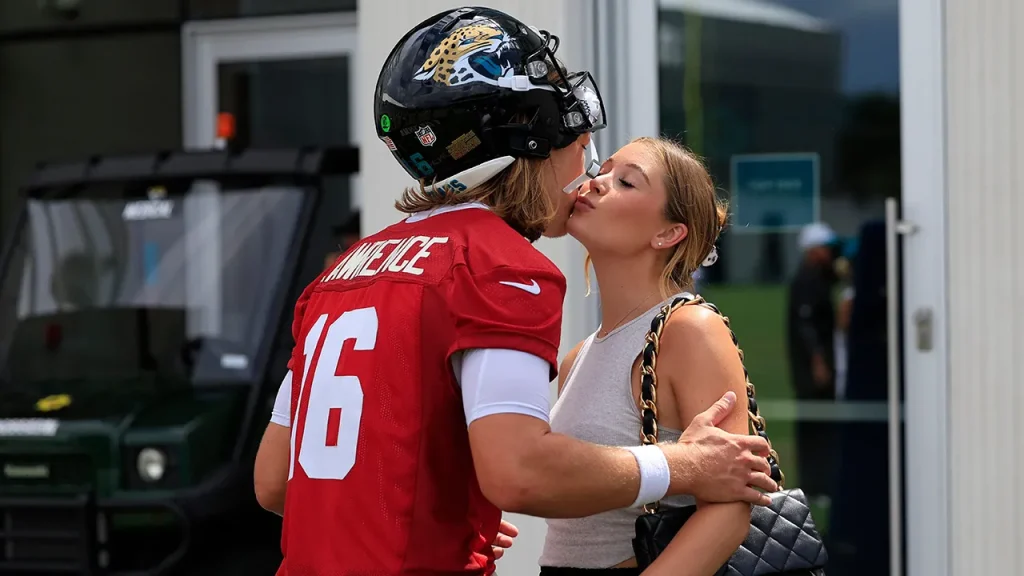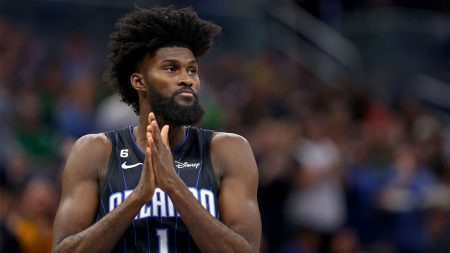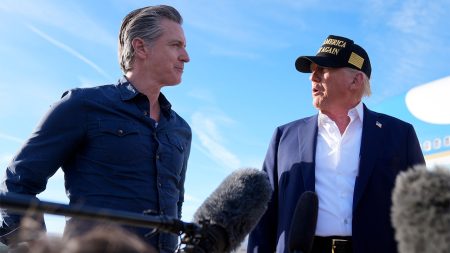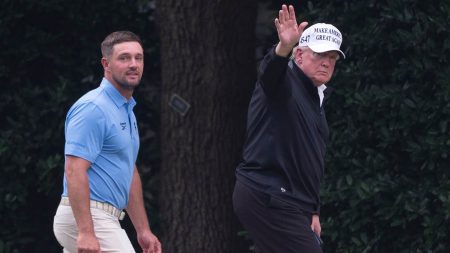In a recent NFL matchup, Jacksonville Jaguars quarterback Trevor Lawrence suffered a concussion after a significant hit from Houston Texans linebacker Azeez Al-Shaair. The incident occurred during the game, forcing Lawrence to leave the field as he was visibly shaken and required assistance before being carted off. Despite his absence, the Jaguars continued to compete but ultimately fell short, losing the game 23-20 to the Texans. The situation highlights not only the physicality of the sport but also the potential consequences players face in terms of health and safety.
Post-game, Lawrence’s wife, Marissa, expressed gratitude on social media for the support and prayers from fans and friends. She emphasized their focus on ensuring Trevor’s well-being, indicating that health is the priority following such an alarming incident. In a follow-up message, Lawrence provided an update on his condition, assuring everyone that he was at home and feeling better, thanking those who reached out and demonstrating a sense of community support amidst the adversity he faced.
The hit that caused Lawrence’s injury led to considerable fallout, including an on-field brawl igniting between players from both teams. Al-Shaair was ejected from the game for the hit, and Jaguars cornerback Jarrian Jones was also removed for his involvement in the ensuing confrontation. This escalation of emotions on the field illustrates the heightened stakes and competitive spirit prevalent in the NFL, as players instinctively rally to protect their teammates in the face of perceived threats.
In the aftermath, Jaguars players criticized Al-Shaair’s actions, with linebacker Josh Allen-Hines labeling the hit as careless. He reflected on the evolution of NFL rules surrounding player safety and how such hits are increasingly deemed unacceptable. While acknowledging the physical nature of football, he underscored a broader expectation for players to adhere to the established regulations aimed at preventing serious injuries, reinforcing the need for accountability in these high-impact situations.
Tight end Evan Engram also chimed in, calling the hit “dirty” and expressing an immediate instinct to defend his quarterback. Engram noted that the nature of the hit was fundamentally wrong, especially given the circumstances of Lawrence attempting to slide down, which is typically a signal for defenders to ease their aggression. His reaction encapsulates the camaraderie among team members, emphasizing the fierce loyalty players feel towards one another during intense situations on the field.
As the Jaguars process the fallout from this incident, it serves as a stark reminder of the ongoing conversations about player safety within the NFL. With Lawrence’s recovery in focus, the team and its supporters are united in their concern, reflecting the larger sentiment of promoting health in a sport that involves significant physical risk. These discussions highlight the delicate balance that athletes must navigate as they engage in a game characterized by aggression and competition, all while organizations strive to prioritize player health and prevent injuries.
